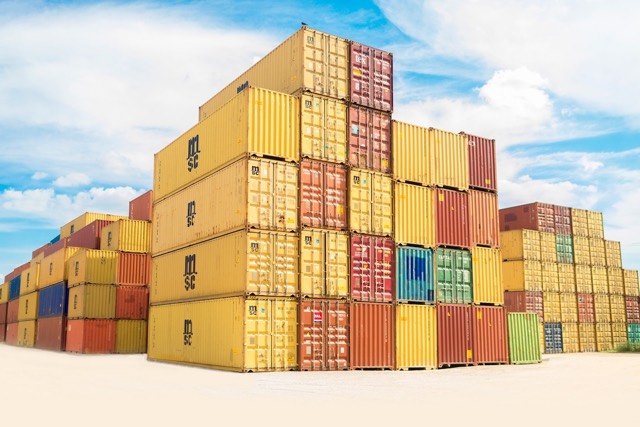Is FBM or FBA the Best Model for you?
At the end of the day, both FBM and FBA sellers have proven to be successful, so the answer is that it really depends. This guide presents 6 key elements to help you figure out what's best for your business.
Answering the question, “how valuable is Amazon’s reputation to you and your customers”? will help you decide.
It comes down to:
- Amazon's brand value and convenience.
- The type of product you’re selling.
- Your customer volumes and product range.
- The amount of manpower you have.
- Know your costs to know which method is most profitable.
- How to scale your business.
1. Amazon’s Customer-Centric Brand
On the customer front, Amazon has already built a strong, reliable brand. Customers are more likely to buy from Amazon due to the strong level of trust the company inspires. If something goes wrong, people know that Amazon will take care of it. They also know Amazon has successfully mastered the distribution process and will send the item quickly.
A growing number of Amazon customers pay $99 a year for Amazon Prime, entitling them to free 2-day shipping and other benefits. With the number of Prime customers going up, it’s definitely worthwhile looking into FBA as an option, because customers are more likely to choose your product if they don’t have to wait as long for it!
As a reminder, being an FBA seller will automatically make you Prime eligible by default. Although now the Prime label can be bestowed on FBM sellers with excellent ratings, which means if you’re a FBM seller, you can have the option to fulfil orders yourself and still benefit from the Amazon brand – but you will have to work harder for it.
Both FBM and FBA methods can benefit from Amazon Prime, but FBA is the easier option, while FBM sellers need to work harder to gain credibility and Amazon Prime status.

2. Product
The product is extremely important whether you’re going FBM or FBA. FBA is good for products that are small(ish), not too heavy, that are higher priced (e.g. head torch or bluetooth speaker) because ‘pick and pack’ handling fees are fixed. But if you decide you really want to sell bigger products, just realise you’ll be paying higher storage fees from Amazon to keep your product in their warehouse.
Popular products that sell quickly are also great for FBA, especially since Amazon charges storage costs after 6 months.
Although some sellers suggest low sale items are also ideal to sell via FBA, because chances of selling those products improve with Amazon Prime and you are automatically Prime eligible if you use FBA.
Quality of product is also often a concern for many sellers, particularly if you’re dealing with electronics. With both the FBM and FBA models, you can inspect every item you sell before you ship it to them, so you can be rest assured that you’re still selling quality products and your reputation will remain intact.
Remember product is key when you are selling, so give the type of product you want to sell a lot of thought. Find a popular product category, do competitive analysis, study product reviews and identify a product you can improve or sell at a better price.

3. Product Volume & Range
FBA is also the better model if you’re a small seller and you don’t already have an efficient fulfilment system of your own. Also, if you don’t want to risk potential negative effects from poor customer service, FBA is the better option.
On the other hand, if you’re an existing seller with a high volume of products you’re selling, physical storage space can be an issue. Sending your inventory to Amazon means you won’t have to worry about where to store your products at your house and office.
If you intend to scale up to sell a variety of different products, FBA can be a more cost effective and efficient route, unless you have an existing fulfilment process that takes scaling into account.
Simply put, orders placed through FBA are processed and shipped faster than those from other logistics companies and they are improving their technology and processes to make it even faster to deliver products, with very little human error. A better customer experience means you will potentially get repeat business.

4. Manpower
If you’re a small business and lack the manpower to cope with orders then FBA will be worthwhile. If you receive a lot of orders and need to head to the post office within 2 days, there could be a variety of reasons why this will prove inefficient.
Even if you take on more employees during busier periods and increase your overheads, you’ll also have to manage them and reduce the potential for human error. This can be challenging, plus you need to anticipate when your busy times are. It’s certainly difficult to forecast orders and difficult to enlist an extra pair of hands in advance, which is another reason why FBA is generally easier than using the FBM model.
With the FBA model, it can be easier to create a business that generates passive income and is less capital intensive. Many people with an existing FBA business that is driving profits only spend a few hours a week on their business, making sure there is plenty of stock to match current demand.

5. Costs
This is where Amazon’s FBA revenue calculator really helps. All you need is the ASIM product number and price for the product and shipping costs.
You can also compare whether the FBM or FBA option is cheaper for you to ascertain whether it makes sense to use FBA for your particular product. Amazon automatically calculates this for you so it really is easy to compare which model is best.
So is the FBM or FBA model cheaper? The answer is, it really depends… it depends on your brand, your product (volume and range), the manpower you have – and how much you’re willing to spend on your business.

6. Additional Benefits
Aside from product, sales, amount of resources and costs, the prospect of growing or ‘scaling’ your business is another thing you can benefit from using FBA.
You might want to eventually start distributing your products outside of Amazon or have a pre-existing website and this is actually made possible through the FBA program.
As previously mentioned, Amazon FBA allows for multi-channel distribution, meaning that if you start up your own online store and someone wants to buy your product from your private website, Amazon will still ship it your customer for you.
There is so much to learn about selling on Amazon.
From how to set up your business for success to insider tips and tools, these guides cover every aspect of starting and building a business in the worlds biggest marketplace.











